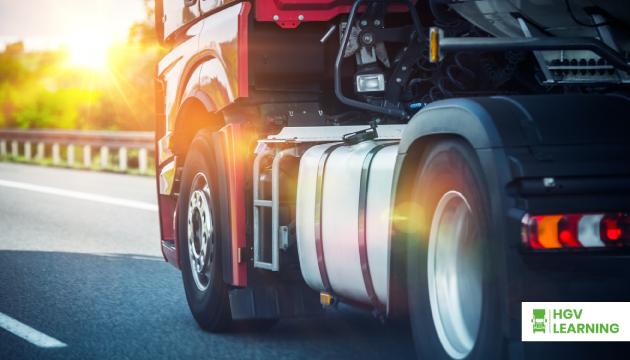Related Articles

09/02/2026
How to Find Lorry Driver Jobs Near Me: A Practical UK Guide


The future HGV licence in the UK is likely to look very different by 2030. With rapid technological advancements, environmental targets and new DVSA regulations shaping the industry, aspiring and current HGV drivers should prepare for major changes. This article explores potential updates to licensing rules, training requirements and operational standards that could define the next decade.
Licensing rules for heavy goods vehicle drivers in the UK have evolved slowly over the years. However, with a nationwide push for greener, smarter logistics, the pace of change is expected to accelerate. Future adjustments could include:
These adjustments aim to tackle driver shortages while maintaining safety and efficiency on UK roads. It may also involve streamlined qualification pathways where drivers can complete multiple licence levels in a shorter period.
The DVSA has already begun outlining its Vision 2030 strategy, which focuses on:
Recent consultations suggest future HGV licensing may involve modular tests where candidates can demonstrate different competencies at various stages. This approach could replace the traditional single-exam format. For more details on DVSA licensing guidance, visit the CPC certification guide.
The UK’s commitment to net-zero emissions is a major driver of licensing reform. By 2035, the sale of non-zero-emission HGVs under 26 tonnes will end, followed by a full phase-out for heavier models by 2040. This transition will likely require new training modules and certifications, focusing on electric or hydrogen-powered HGVs.
Drivers may need additional qualifications to operate next-generation vehicles safely and efficiently. Future licence categories could distinguish between traditional diesel engines and zero-emission technologies. Guidance on financing future-ready training is available in our HGV training finance options.
Environmental policies could also lead to stricter urban access rules. Drivers may need city-specific permits or certifications to operate low or zero-emission trucks in designated clean air zones.
Automation is reshaping logistics worldwide. While fully autonomous HGVs may not be mainstream by 2030, driver assistance systems and connected vehicle networks will be standard. Licensing and training will need to adapt, ensuring drivers understand advanced safety systems, semi-autonomous controls and smart motorways.
Advanced driver-assist features such as adaptive cruise control, automated lane-keeping and collision avoidance systems are expected to become part of the mandatory training curriculum. Drivers may need to complete refresher courses periodically to stay updated with evolving automation technologies.
We may also see the introduction of specialised licences for operating highly automated freight vehicles, reflecting their unique operational requirements. These licences could include additional assessments focused on supervisory roles where drivers manage automated systems rather than traditional manual driving.
Safety standards will continue to evolve with technology. The rollout of Smart Tachograph 2 and updates to the Direct Vision Standard indicate a future where data plays a bigger role in compliance. Licensing assessments might include mandatory telematics training, digital tachograph management and enhanced safety checks.
Future DVSA testing could move towards real-time digital monitoring of driving patterns to ensure continued road safety standards across the industry. Data from onboard sensors may automatically feed into compliance records, reducing the reliance on physical inspections.
Increased focus on safety technology will also require drivers to learn advanced emergency response techniques. This may include training for automated braking systems, stability control and fatigue detection technologies integrated into modern HGVs.
For drivers, the future of UK HGV licensing means ongoing training and adaptation. Staying qualified may require:
Employers will also need to invest in training programmes, onboard telematics systems and sustainability-focused operations to stay compliant and competitive. Companies may introduce in-house digital training platforms to upskill their drivers quickly and efficiently.
At HGV Learning, we stay ahead of industry trends to support drivers throughout their careers. Our training partners offer:
By planning ahead, drivers and businesses can navigate these changes smoothly, ensuring they remain qualified and ready for the future of logistics. Our aim is to provide long-term career support, helping drivers transition seamlessly through upcoming industry reforms.
As technology advances, we can expect further shifts beyond licensing alone. Supply chain digitisation, remote vehicle diagnostics and AI-based logistics planning will redefine driver roles. Future licensing might involve competency testing in these digital skills, blending traditional driving expertise with next-generation logistics management.
Cross-border licensing agreements within Europe may also be revised, aligning training standards with sustainable freight targets. Drivers operating internationally could benefit from unified regulations, simplifying licence recognition across multiple jurisdictions.
The future HGV licence in the UK will be shaped by environmental policies, automation and evolving DVSA updates. As 2030 approaches, drivers must prepare for new licence categories, stricter compliance standards and advanced vehicle technology training.
For personalised advice and access to modern training solutions, get in touch with HGV Learning today and start preparing for the road ahead.

09/02/2026

Complete the form below and we’ll contact you asap.

